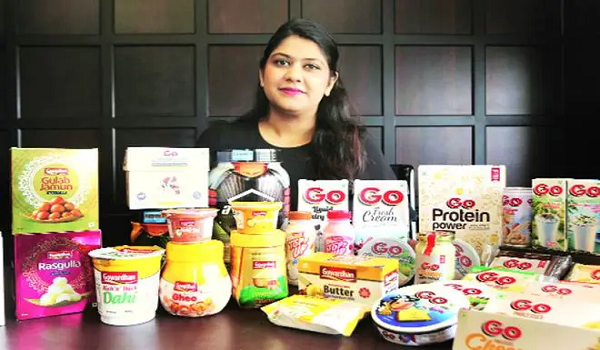Amidst sluggish growth in the broader Fast-Moving Consumer Goods (FMCG) sector, India’s dairy industry has emerged as a beacon of resilience, driven by rising health awareness and a growing appetite for protein-rich diets. According to Akshali Shah, Executive Director of Parag Milk Foods, the sector’s ability to cater to diverse consumer needs—from everyday essentials to premium and health-focused products—has been a key factor in its continued success.
Shah highlighted the adaptability of the dairy sector, which has allowed it to thrive despite challenges like fluctuating raw milk prices and inflationary pressures. India’s milk production reached 239.30 million tonnes in 2023-24, reflecting a 3.78% growth, albeit slower compared to previous years.
Shah attributed the slowdown in production growth to rising feed costs, supply chain disruptions, and limited access to modern farming techniques. Despite these hurdles, India’s dairy sector has outpaced global growth rates, recording a Compound Annual Growth Rate (CAGR) of 10.7% between 2018 and 2023, with projections indicating a CAGR of 14% from 2024 to 2032.
Parag Milk Foods has capitalized on this momentum through product diversification and innovation. While traditional offerings like Gowardhan Ghee and Go Cheese remain household staples, premium products such as Pride of Cows have gained popularity among urban consumers seeking purity and traceability. Additionally, the company’s Avatar whey protein brand has tapped into the growing market for health-focused, functional foods.
Fluctuations in raw milk prices continue to pose challenges for the industry. Shah revealed that Parag Milk Foods mitigates these risks through long-term farmer partnerships, fair pricing mechanisms, and advanced supply chain technologies like SAP HANA, which optimize procurement and reduce wastage.
Technology is playing an increasingly critical role in boosting efficiency and scalability within the dairy industry. Tools such as predictive analytics, IoT-enabled sensors, and AI-driven farm management systems are helping improve milk yields, streamline supply chains, and minimize environmental impacts.
With growing consumer demand for adulteration-free dairy products, Parag Milk Foods has implemented rigorous quality control measures across its supply chain. Shah emphasized the importance of sustainable farming practices and transparency in building consumer trust.
Despite broader challenges in the FMCG landscape, India’s dairy sector remains a strong performer, driven by innovation, adaptability, and a sharp focus on consumer needs. As demand for value-added and health-centric dairy products continues to rise, the sector is well-positioned for sustained growth in the coming years.


